Direct from BOOM Finance and Economics at the links below
This week, BOOM is continuing a plea to use cash as much as possible because you will lose it if you don’t use it. The Totalitarian Globalists are coming for your money. Cash is YOUR Sovereign Money and carries the support of all national governments as representatives of The People. It is also a natural buffer against interest-bearing money that originates when a bank loan is created. As a matter of economic principle, physical cash must always be readily available in any economy. Foreign currency should NEVER be allowed to circulate at the same time
Hat Tip to my colleague at BOOM Fin4ance and Economics Substack (Subscribe for Free) – also on LinkedIn and WordPress. Covid Medical News Network CMN News BOOM Blog and All Editorials (over 5 years) at BOOM Finance and Economics | Designed for Critical Thinkers — UPDATED WEEKLY (WordPress.com)
BOOM Finance and Economics seeks out the very best information from authoritative sources and strives for consistency in its quality and trustworthiness. Over 5 years, BOOM has developed a loyal readership which includes many of the world’s most senior economists, central bankers, their senior advisers, fund managers, and academics. If you want a real edge in understanding the complex world of finance and economics, subscribe to BOOM on Substack or as a Follower on LinkedIn.
BOOM EDITORIAL THIS WEEK

- Totalitarianism was displayed ruthlessly, by almost all governments, during the so-called “COVID-19 pandemic”, which is more accurately described as the ‘Covid Fear & Controldemic’
- The Withdrawal of Physical Cash leaves a nation dependent upon its banks, electricity supply, and its connections to the Internet.
These are two critical matters that will determine the future of both Democracy and Freedom, especially regarding financial transactions.
BOOM has already dealt with the threat of totalitarian tendencies that emerged in the so-called “crisis” of COVID-19. The fear-based manipulation of entire populations was aimed at achieving compliance with totalitarian government edicts.
The slogan of the day, “We are not safe until we are all safe”, might have been written by George Orwell or, perhaps, Joseph Stalin. In this editorial, BOOM will demonstrate how critical cash is to the success of any nation.
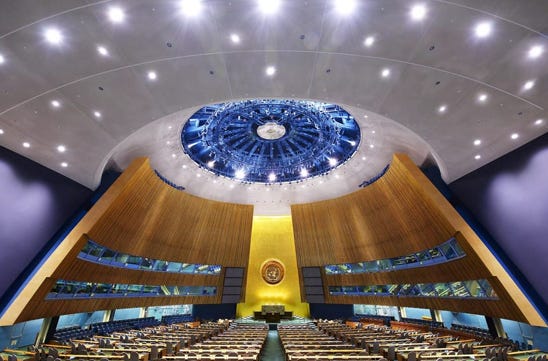
Cash is Sovereign Money and carries the support of all national governments as representatives of The People. It is also a natural buffer against interest-bearing money that originates when a bank loan is created. BOOM calls this Credit Money. Credit Money resides on bank ledgers as a digital record, thus, it has been digital money for many decades.
Credit Money is now 97-8% of fresh new money at origination (creation) in most advanced economies. This means that physical cash is now only 2-3% of fresh, new money being circulated. In the 1950s, the ratio was closer to 50:50 and resulted in more stable economies with lower CPI inflation and low but steady economic growth.
Cash must always be issued by the Sovereign of a Nation upon the demand or request of The People and issued by The Peoples’ elected representatives subject to Parliamentary procedure in a Republic. It must be non-interest-bearing and free of all fees. It should be fungible and anonymous.
Cash can be distributed by the banking system or by other trusted distribution networks, such as Post Offices, that operate in most nations. BOOM has said in previous editorials: “BOOM is a strong supporter of the role of physical cash in any economy. Cash is The People’s money, issued most often by the Sovereign Treasury (not by the banking system), being non-interest bearing, a buffer against credit money dominance, anonymous in usage, perfectly fungible, and a natural hedge against CPI inflation. Only a foolish nation abandons its currency, either in a currency union or in the form of physical cash. Any central bank that cannot recognise this truism is also foolish in the extreme. And any government that cannot see this is worse than foolish. It is acting in treason against its own people.”
This can be summarised easily as a matter of economic principle. Physical cash must always be readily available in any economy and its use encouraged. Foreign currency should NEVER be allowed to circulate at the same time.
Suppose physical cash as a national currency is unavailable; then a nation’s money supply will become dependent upon demand (and supply) for bank loans and banking services which also depend upon a reliable and “always on” supply of electricity and Internet connection.
Foreign currencies may then become accepted and circulated as a substitute. Any foreign currency in circulation as physical cash is a precursor of Inflation & hyperinflation when the national currency collapses as the people abandon it for an alternative, often the US dollar.
AUSTRALIAN SENATE INQUIRY INTO BANK CLOSURES – ACCESS TO CASH
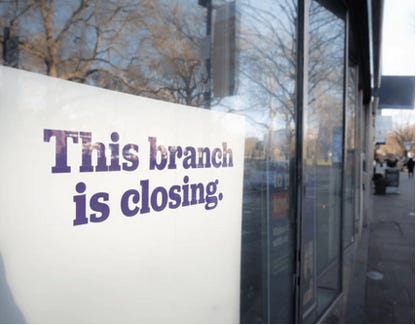
In February 2023, the Australian Senate Rural and Regional Affairs and Transport Committee established an inquiry into the extent of bank closures in regional Australia. This inquiry was the latest in a long line of inquiries and investigations into the behaviour of Australia’s banks about closing branches. There have been numerous Parliamentary and independent inquiries into the financial sector and regional accessibility.
The committee subsequently received 609 submissions from many individuals, banks, ADI’s, and community organisations. This included every Australian-owned authorised deposit-taking institution (ADI), Australian Government departments, state governments, financial industry associations, regional communities, advocacy bodies, First Nations organisations, universities, think tanks, and unions. The submissions are listed and published on the Committee’s Website
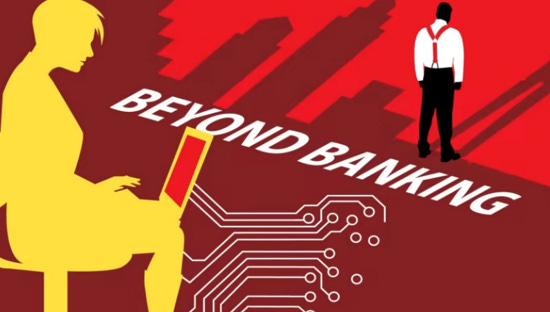
The economic and welfare impacts of bank closures on customers and regional communities
1. the effect of bank closures or the removal of face-to-face cash services on access to cash;
2. the effectiveness of government banking statistics capturing and reporting regional service levels, including the Australian Prudential Regulation Authority’s authorised deposit-taking institutions’ points of presence data
3. consideration of solutions; and any other related matters
The committee heard repeatedly throughout the inquiry that there are many benefits to using cash instead of digital transactions. A key problem is the definition of what a bank branch is. The question was raised: Are cashless banks banks? One submission summed this up.
“When you take tellers and cash service out of a bank, which ANZ and [National Australia Bank] are doing—I think the others are starting— …. they become cashless banks—one journalist the other day was asking me about fake banks, and I think that’s probably a really good term to describe them”.
The Inquiry has been ongoing for over 12 months and it issued a Report last month, in late May 2024. The Report is available as a PDF Document (199) Pages). BOOM highly recommends it for anyone in any nation, interested in the subject of money.
It made the following recommendations. BOOM strongly agrees with all of them: List of Eight Recommendations
- Recommendation 1 2.153 The committee recommends that the Australian Government adopt a policy recognising access to financial services as an essential service. To this end, it should commit to guaranteeing reasonable access to cash and financial services for all Australians.
- Recommendation 2 5.39 The committee recommends that the Australian Government commission an expert panel to investigate the feasibility of establishing a publicly owned bank. In investigating this, the panel should examine options including, but not limited to a stand-alone public bank or one associated with, and using the branch network of Australia Post.
- Recommendation 3 5.54 The committee recommends that the Australian Government urgently develop a mandatory Banking Code of Conduct or Customer Service Code (Code), incorporating a robust branch closure process, to be administered by a regulator with expertise in consumer protection. The new Code would require financial institutions to: undertake meaningful consultation with communities before a branch is closed; prepare and submit a comprehensive report on the potential impacts of the closure and identify alternative financial services in the event of closure; and implement and fully fund transition arrangements and ongoing support services which ensure access to cash and essential banking services following a closure. 5.55 The committee recommends that the regulator would assess compliance with the Code before any closure is agreed to.
- Recommendation 4 5.56 In enforcing the mandatory Banking Code outlined in Recommendation 3, the committee recommends that the regulator be authorised to approve or defer any closure request. In deferring a closure, the regulator would be authorised to direct a bank to take certain reasonable actions, including ordering further consultation or providing additional information to the regulator. 5.57 The regulator should be provided with a range of penalties should a bank fail to comply with an order to defer closure, or with any other undertaking.
- Recommendation 5 5.58 The committee recommends that the Australian Government commission the Australian Competition and Consumer Commission to explore the barriers to customers switching banks, to allow those that open and/or maintain branches in regional, rural, and remote towns to attract more business.
- Recommendation 6 5.65 The committee recommends the Australian Government establish the Regional Community Banking Branch Program (RCBBP). The objective of the RCBBP would be to help underwrite the establishment of ‘community bank’ branches providing in-person banking services in regional, rural and remote Australia. Local communities would be required to raise their own capital as well, but the government contributions could help lower the required amounts. Consideration could also be given to using this fund to help enhance financial services available at Australia Post. 5.66 To support the RCBBP, the committee recommends that the Australian Government establish a supplement to the Major Banks Levy to be levied on the major banks. Funds raised by the supplement must be hypothecated to provide funding to the RCBBP.
- Recommendation 7 5.77 The committee recommends that the Australian Government works closely with the banks and Australia Post, to require all major banks to have agreements with Bank@Post and to harmonise the terms of Bank@Post agreements to improve fairness and sustainability. Specifically, agreements should include increased deposit limits to support small businesses, provisions to facilitate identification verification and to handle issues around temporary account closures or multiple signatory requirements. 5.78 Major banks that do not put in place agreements with Bank@Post to deliver financial services should pay an increased supplementary levy as described in Recommendation 6.
- Recommendation 8 5.83 The committee recommends that the Australian Competition and Consumer Commission consider measures to protect access to personal and business banking services in regional, rural, and remote locations. This may include, but not be limited to, proposing an authorisation to circumvent anti-competitive laws such that banks can cooperate to reduce the impacts of bank branch closures on regional communities.
YOUNG AUSTRALIAN DENIED ACCESS TO HIS BANK – DEBANKING ALSO OCCURRED FOR SOME CITIZENS DURING THE TRUCKERS’ PROTEST IN CANADA IN FEBRUARY 2022
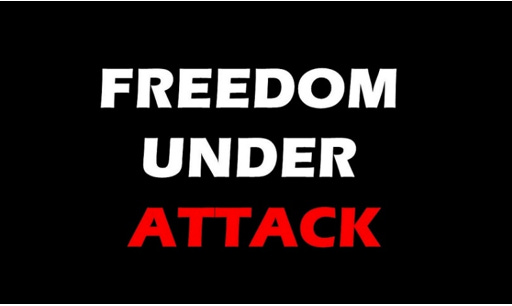
On February 17, 2022, Canadian Deputy Prime Minister Chrystia Freeland said in a press conference that financial institutions had started freezing bank accounts and cancelling credit cards by the Emergencies Act, which Prime Minister Justin Trudeau had invoked.
The powers granted by the Act allowed banks to also target the accounts of people who had donated to crowdfunding platforms, like the fundraising campaigns on GoFundMe and GiveSendGo. Freeland said (ominously): “We now have the tools to follow the money. We can see what is happening and what is being planned in real time and we are absolutely determined that this must end now and for good”.
BOOM can easily imagine Stalin or Pol Pot saying that. That was an example of totalitarianism from a national government where they chose to block some targeted citizens’ access to physical cash and to any bank deposits they had accumulated. In other words the Government of Canada became tyrannical and, in BOOM’s opinion, effectively stabbed the nation in its very heart.
Now in Australia, last week, BOOM read a report concerning a young Australian, aged 20 years, with no criminal history who was “debanked” due to his political views. Melbourne man Michael Nelson, recently received a letter from Bendigo Bank informing him that his account would be closed in 21 days, citing a clause in their terms and conditions.
“As a result of a recent internal review conducted by the Bank and careful consideration, we have determined that we are unable to continue providing you with banking and financial services. This decision has been made in order to protect the Bank’s legitimate interests,” read the letter, which was reportedly unsigned.
The relevant clause, 16.4, states that the bank may close an account at any time due to “unsatisfactory conduct”, which it says includes behaviour that is “defamatory, harassing, threatening to any person”, or “promotes or encourages physical or mental harm of any person”.
There is currently no law in Australia against debanking, but in June last year, Australian government regulator AUSTRAC warned that banks should consider federal, state, and territory anti-discrimination legislation before choosing to cease services. And in the UK …

However, perhaps due to Mr Farage’s wealth, status, and establishment support, including from Prime Minister Rishi Sunak, he was able to force an investigation that resulted in the subsequent resignation of not only the Coutts chief executive but also the CEO of owner NatWest. References: These stories are worth reading in full and are available here:
- On Nigel Farage in the UK: https://news.sky.com/story/key-points-from-coutts-dossier-on-nigel-farage-12924078
- And On Michael Nelson in Australia: https://www.noticer.news/australian-nationalist-debanked-political-views/
- Banks Freezing Accounts Linked to Trucker Protest:
https://www.newsweek.com/banks-have-begun-freezing-accounts-linked-trucker-protest-1680649
DE-BANKING – A GLOBAL ISSUE – A LEGAL CASE ON WRONGFUL TERMINATION OF BANKING SERVICES – ANOTHER AUSTRALIAN STORY OF TOTALITARIAN BANKING CONTROL. The recent case of Human Appeal International Australia v Beyond Bank concerned the circumstances of a wrongful termination of banking services.
The case — Human Appeal International Australia v Beyond Bank Australia Ltd (No 2) [2023] NSWSC 1161 – concerns the conduct of a bank that de-banked a corporate customer (who also happened to be an owner of the community-owned/mutual bank itself).
De-banking is a term that describes the circumstances when a bank declines to provide banking services or withdraws banking services from an existing customer or class of customer.
The Australian Government’s response to de-banking suggests that de-banking may be driven by several inter-related causes, including Anti-Money Laundering and Counter-Terrorism Financing (AML/CTF) laws, sanctions compliance, profitability, and reputational risk considerations.
In August of 2022, the Australian Council of Financial Regulators, the Attorney General’s Department, AUSTRAC, and ACCC issued a joint Report titled “Potential Policy Responses to De-banking in Australia”
In the Report, they referred to the fact that this is becoming a global problem, “Few affected countries have been able to adequately address the issue of de-banking. The systematic de-banking of legitimate businesses across entire sectors can have significant impacts on affected businesses and increase their risk profile by forcing them to operate outside of the legal framework and conduct transactions exclusively in cash.”
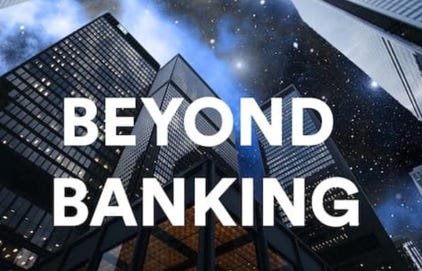
Beyond Bank is a mutual bank owned by its members. Such banks are relatively common in Australia and have emerged from Building Societies and Credit Unions that were (mostly) established many decades ago. Most of the major banks in Australia, however, are shareholder owned banks.
Human Appeal was both an account owner and a member of the Bank entitling it to hold an account together with member rights. In other words, it was a part owner of the bank and an account holder. Human Appeal’s website lists its Partner organisations as MCCA (Islamic Finance and Investments), the Islamic Museum of Australia, the Islamic Council of Victoria and the Australian Halal Certification Authority.
Human Appeal is a company limited by guarantee which operates as a charity registered with the Australian Charities and Not-for-profits Commission. It was established more than 30 years ago with particular support from the Muslim community in Australia. Human Appeal had established banking facilities with Beyond Bank since March 2021.
In mid-August 2021, the Bank notified Human Appeal that it was closing its accounts. The termination of Human Appeal’s banking facilities was effected by notice in the form of an email sent by the bank on 11 August 2021:
“A recent review was conducted and as a result, the bank has concluded that your banking business is not suited to Beyond Bank and therefore, we will exercise our right to close all of your banking facilities under membership xxx, with effect from close of business 20/8/2021.” “I am not in a position to provide any further information as to why your banking business is not suited to Beyond Bank.”
At the time, the balance of the Human Appeal’s Community Account was around $ 6.1 million in credit, and its Visa Debit Account was around $13,600 in credit.
Pertinent to the case is The Customer Owned Banking Code of Practice (Code) which is the code of practice for Australia’s mutual banks, credit unions and building societies. That Code is published on the website of the Community Owned Banking Association. If readers wish to peruse it, the link is provided at the end of this article. The Court decision. The Court did not accept either of the following matters:
- The Bank’s reasons for termination, and formed a view that in the circumstances the Bank could have communicated its concerns to its Customer; and
- On the evidence, that the cost of monitoring the bank accounts was the reason for the decision to terminate. The judgment focused on specific account and trading terms and conditions adopted by the bank. In this regard, the court found:
- Observed that the existence of an obligation to exercise contractual powers in good faith (and, it is sometimes added, reasonably) is well recognised;
- However, did not go so far as specifically addressing whether a bank’s right to terminate is always subject to the implied obligation of good faith or reasonableness;
- Held that the Code of Practice was expressly incorporated into the Bank’s terms and conditions, which guide the manner in which the bank is to act. Although the Code does not use the terms ‘good faith’ or ‘reasonableness’, it uses similar terms. Thus, there was room to argue that there is a contractual obligation of good faith and reasonableness which is express (or at least which arises from the express terms of the contract rather than by way of stand-alone implication); and
- Accepted the bank submission that the fair balancing of interests must take account of the bank’s legal obligations, including its secrecy obligations under the Commonwealth Act, that is, any obligation to give reasons must be limited to the reasons the bank may lawfully disclose. However, in the current circumstances, this was not an obstacle to giving at least some explanation if the Bank’s decision had been based on the administrative burden of complying with the AML/ CTF Act.
Summary: In the circumstances of the case, the bank was obliged to have reasonable evidence to support its determination that it had a valid commercial reason to terminate the customer’s banking facilities and to disclose that reason to its customer. That is, the Bank was only entitled to terminate Human Appeal’s banking facilities if it had “a valid commercial reason” for doing so.
The case suggests that to validly de-bank a customer a bank does not have a unilateral right to terminate its relationship with a customer under an express termination provision in its trading or account terms as other factors intervene such as:
- A decision to de-bank must have a commercial basis;
- The terms and conditions may be expressly affected by the relevant Code of Conduct;
- The bank must “act honestly” and “fairly and reasonably” towards its customer;
- A bank is obliged to give reasons for its decision.
- However, if a bank satisfies these criteria, then the termination of banking facilities may be valid.
BOOM is not a lawyer and does not offer legal advice. This article is publishe for general information purposes only. It is not legal advice. It should not be relied on as specific advice. Human Appeal’s website — Home The Customer Owned Banking Code of Practice (Code) — https://www.customerownedbanking.asn.au/about-us/our-sector/code-of-practice/
THE UNIVERSAL DECLARATION OF HUMAN RIGHTS. FREEDOM AND DEMOCRACY ARE UNDER ATTACK FROM GOVERNMENTS, BANKS AND MAINSTREAM MEDIA. The Universal Declaration of Human Rights (UDHR) is a milestone document in the history of human rights. Drafted by representatives with different legal and cultural backgrounds from all regions of the world, the Declaration was proclaimed by the United Nations General Assembly in Paris on 10 December 1948 (General Assembly resolution 217 A) as a common standard of achievements for all peoples and all nations.
It sets out, for the first time, fundamental human rights to be universally protected and it has been translated into over 500 languages. The UDHR is widely recognised as having inspired, and paved the way for, the adoption of more than seventy human rights treaties, applied today permanently at global and regional levels (all containing references to it in their preambles). PREAMBLE:
- Whereas recognition of the inherent dignity and of the equal and inalienable rights of all members of the human family is the foundation of freedom, justice, and peace in the world,
- Whereas disregard and contempt for human rights have resulted in barbarous acts that have outraged the conscience of mankind, and the advent of a world in which human beings shall enjoy freedom of speech, belief, and freedom from fear and want has been proclaimed as the highest aspiration of the common people,
- Whereas it is essential if man is not to be compelled to have recourse, as a last resort, to rebellion against tyranny and oppression, that human rights should be protected by the rule of law,
- Whereas it is essential to promote the development of friendly relations between nations,
- Whereas the peoples of the United Nations have in the Charter reaffirmed their faith in fundamental human rights, in the dignity and worth of the human person, and in the equal rights of men and women and have determined to promote social progress and better standards of life in larger freedom.
FREEDOM AND DEMOCRACY UNDER ATTACK FROM GOVERNMENTS, BANKS, AND MAINSTREAM MEDIA. The issues raised in this editorial are central to the concepts of national Democracy and Freedom. They include totalitarianism, access to physical cash, access to financial services, de-banking (unilateral closure or control of bank accounts), bank branch closures, and “digital” money, along with digital identity.
BOOM is warning readers of totalitarian tendencies developing in all democratic nations. Governments, banks, and the mainstream media are currently displaying these worrying tendencies. They use fear as a control mechanism and they use veiled threats as a means to exert corporate power over individuals.
Medical Fascism is rising as their favourite means of control. So-called “Public Health” is the method of attack. Private health is their enemy.
Financial Fascism, Energy Supply Fascism, and Food Supply Fascism are next, then enslavement will come. Beware.
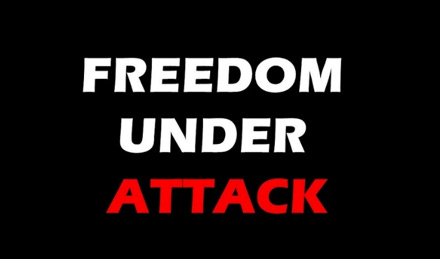
History shows us that totalitarian power inevitably results in tyranny and torture. If we don’t do this as individuals, then governments, banks, and the mainstream media will assume greater and greater power over us, our children, and our grandchildren.
They took absolute control during the Covid Fear Demic and stated “We act for the greater good”, “we act to keep you safe”, and “Nobody is safe until everybody is safe”. They assumed power over and above the universally accepted Declaration for Human Rights. Beware. Our governments, our banks, and our mainstream media were all involved. And let’s not forget, that the ultimate aim and outcome of tyranny is slavery. Our planet’s history is littered with examples of battles won against slavery. It is the universal battle that we must all fight against and which we must win.
Excerpts from the Universal Declaration for Human Rights — 10th December 1948. Many (all?) governments have trampled on these universal rights over the last four years, since 2020, giving the excuse of a so-called “deadly global pandemic” that was no more deadly than an influenza epidemic.
- Article 4 No one shall be held in slavery or servitude; slavery and the slave trade shall be prohibited in all their forms.
- Article 5 No one shall be subjected to torture or to cruel, inhuman or degrading treatment or punishment. [PHOTOS]
- Article 9 No one shall be subjected to arbitrary arrest, detention or exile.Article 10 Everyone is entitled in full equality to a fair and public hearing by an independent and impartial tribunal, in the determination of his rights and obligations and of any criminal charge against him.
- Article 12 No one shall be subjected to arbitrary interference with his privacy, family, home or correspondence, nor to attacks upon his honour and reputation. Everyone has the right to the protection of the law against such interference or attacks.
Article 13
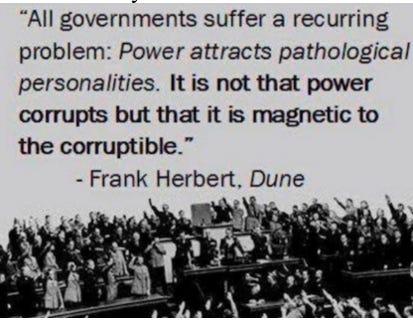
- Everyone has the right to freedom of movement and residence within the borders of each state.
- Everyone has the right to leave any country, including his own, and to return to his country. Article 17 etc – Everyone has the right to own property alone as well as in association with others. No one shall be arbitrarily deprived of his property.
- Article 19 Everyone has the right to freedom of opinion and expression; this right includes freedom to hold opinions without interference and to seek, receive, and impart information and ideas through any media and regardless of frontiers.
- Article 20 Everyone has the right to freedom of peaceful assembly and association.
- Article 21 The will of the people shall be the basis of the authority of government; this will shall be expressed in periodic and genuine elections which shall be by universal and equal suffrage and shall be held by secret vote or by equivalent free voting procedures.
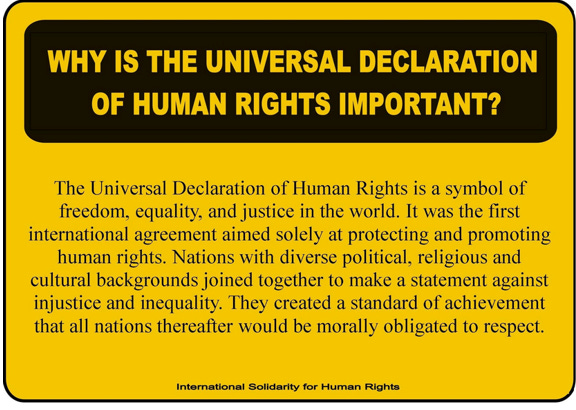
COMING NEXT:
- Letter from South Africa – ELECTION SPECIAL – Saturday, June 15, 2024
- BOOM Global Weekly Review – Tuesday, June 18, 2024
In economics, things work until they don’t. Make your conclusions and do research. BOOM does not offer investment advice.
CLICK HERE FOR PODCASTS: OUR BRAVE NEW ECONOMIC WORLD
BANKS DON’T TAKE DEPOSITS, THEY BORROW YOUR MONEY: LOANS CREATE DEPOSITS — this is how almost all new money is created in the economy (by commercial banks making loans). https://www.bankofengland.co.uk/quarterly-bulletin/2014/q1/money-creation-in-the-modern-economy. Watch the short 15-minute video and see Professor Richard Werner brilliantly explaining how global banking systems work.
In 2014, Richard Werner provided the first empirical evidence that banks create credit out of thin air. They do this whenever they issue a loan or, more specifically, purchase a promissory note. This is a walk-through of exactly how they do it.
Many economists are unaware of this and even ignore the banking & finance sectors in their econometric models.
DISCLAIMER: All content is presented for educational and/or entertainment purposes only. Under no circumstances should it be mistaken for professional investment advice, nor is it at all intended to be taken as such. The commentary and other contents simply reflect the opinion of the authors alone on the current and future status of the markets and various economies. It is subject to error and change without notice. The presence of a link to a website does not indicate approval or endorsement of that website or any services, products, or opinions that may be offered by them.
Neither the information nor any opinion expressed constitutes a solicitation to buy or sell any neither securities or investments. Do NOT ever purchase any security or investment without doing your own and sufficient research. Neither BOOM Finance and Economics.com nor any of its principals or contributors are under any obligation to update or keep current the information contained herein. The principals and related parties may at times have positions in the securities or investments referred to and may make purchases or sales of these securities and investments while this site is live. The analysis contained is based on both technical and fundamental research.
Although the information contained is derived from sources that are believed to be reliable, they cannot be guaranteed.
Disclosure: We accept no advertising or compensation, and have no material connection to any products, brands, topics or companies mentioned anywhere on the site.
Fair Use Notice: This site contains copyrighted material the use of which has not always been specifically authorized by the copyright owner. We are making such material available in our efforts to advance understanding of issues of economic and social significance. We believe this constitutes a ‘fair use’ of any such copyrighted material as provided for in section 107 of the US Copyright Law. By Title 17 U.S.C. Section 107, the material on this site is distributed without profit. If you wish to use copyrighted material from this site for purposes of your own that go beyond ‘fair use’, you must obtain permission from the copyright owner.







Cash is king , use it or lose it!
I liked this ‘Covid Fear & Controldemic’
With regard to the loss of human rights during the above, it is curious that nobody has seen fit to bring a case to the ECHR.
In time I guess, Tigger. The truth is slowly emerging – snails pace – but it’s getting there.
The elephant in the room is quite possibly forged banknotes & somewhat open borders.
Black Market USD (predominantly forged) notes circulating offshore are mostly tolerated as long as they remain circulating offshore, otherwise the design of the notes would be updated regularly or the linen/paper of the banknote itself. (eg. the polymer notes circulating in Australia and parts of SE Asia)
The Globalisation push has failed to account for the convertibility and cross border movement of this ‘fictional’ cash into vehicles that can migrate their way across the ecosystem into the USD (onshore market) via actual physical movements, or new ‘international’ crypto, stock and banking industry sectors.
No economists have ever touched on this issue to my knowledge.
Interestingly George Floyd was caught circulating forged notes via the nightclub scene, just before things went in a different direction.
Good observation AM, thank you – it all adds to my knowledge bank 🙂
I just found this – old data but a guide
file:///C:/Users/Peter/Downloads/pdp2010-2-pdf.pdf